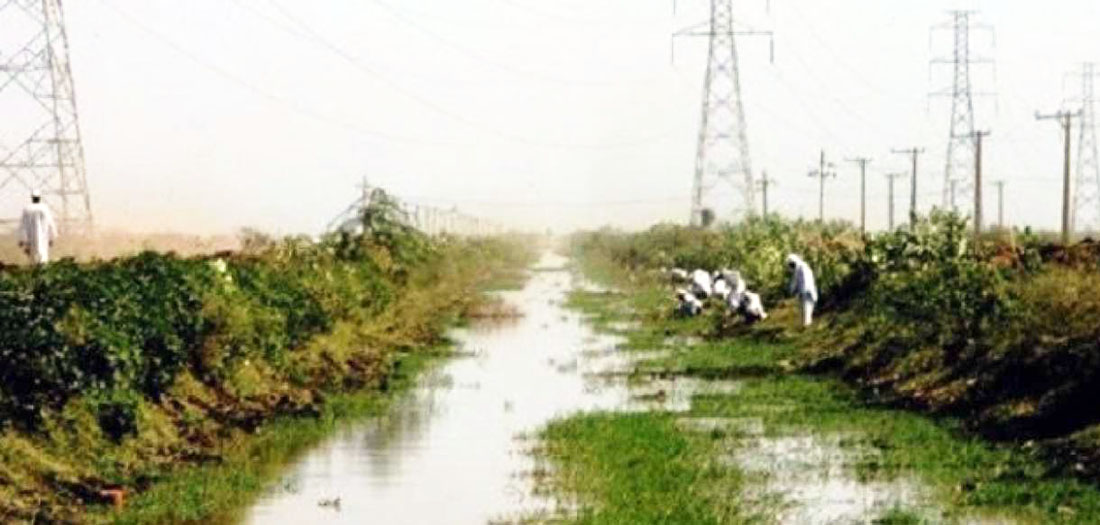
Waiting for famine in Sudan
Yousef Hamad
Farmers in the island state enter the summer harvest season, but with less enthusiasm than in previous agricultural seasons, depending on the aftermath of the war in the country since mid-April, and other considerations experienced by the giant agricultural enterprise for years.
The lack of rainfall and the lack of agricultural inputs (fertilizer and corn) contributed to the low expected productivity of corn and peanuts, the two most prominent crops in the summer lump, which means a direct impact on the anticipated winter lump, which farmers rely on to produce market crops.
According to the recommendations of the Agricultural Research Authority, the scheduled dates for the cultivation of the projects winter lug crops will expire on December 10 and will be faced with less savings and a declining balance due to the abject failure of the summer lottery. besides technical difficulties related to project irrigation.
In fact and practically, winter lump crops begin by mid-November, and the Authority warns annually against any crop cultivation beyond this period. Farmers have effectively begun receiving wheat seeds from the projects management in preparation for the season, but with arbitrary guarantees of writing cheques to manage the project that ensure debt repayment.
The winter season started short in terms of seeds, with farmers receiving only 50% of wheat seeds, and not receiving fertilizers such as Urea and Super Phosphate, meaning no guarantees of any expected success for the season.
According to Kamal Nair, the inspector of the project, the forthcoming winter season will begin, but "there are more than 90% of the projects land without preparation, indicating that it will be without cultivation". According to farmers, the Agricultural Bank, which is competent to finance agricultural operations, has reduced its funding to a minimum and has become unacceptable to the farmers crop.
Nair refers to farmers inability to finance their important winter agricultural season and they face paying the highest tax, up to 300 thousand pounds ( 500), which is the services provided by the Government (water and administrative expenses).
Indeed, the winter season in which market commercial crops are grown is one of the most important for farmers; In the 1980s, wheat entered crop composition and gradually replaced cotton as the cash crop, leading to a shift in the nature of the project from a subsistence project to a commercial capitalist.
At the beginning of the 1990s, the project was privatized, and the State abandoned funding entirely following policies derived from the 2005 Island Project Act.
Last year, before the war in Khartoum, farmers and small producers refused to grow the wheat crop as a result of the policies of the Minister of Finance and Economic Planning, Djibril Ibrahim, after refraining in 2021 from buying the wheat crop from farmers, besides not setting the visible price for wheat, which was then considered one of the biggest challenges facing the winter season.
Indeed, the islands project, one of the largest irrigated agricultural projects in Africa and situated in an area of about 2.2 million acres of arable land, has collapsed, with farmers talking about it in their daily lives. With the collapse of the mega-project, an effective social and economic structure collapsed, which has always been its unwavering column.
The collapse struck more at the heart of the projects villages and towns than in urban areas, such as Damascus, hauliers and soups, and other cities that provided an acceptable way of modelling a promising modern economy and life.
In just two decades, thousands of subsistence farmers and pastoralists in the project had been confused by the agricultural policies in place, forced to leave villages and abandon agriculture to escape for life in the capital, Khartoum, or few had chosen to migrate to work as workers and pastoralists in rich Gulf States.
Now, because of the authoritarian conflict in Khartoum, fugitives from the city have returned to their old villages, or together with their families have sheltered in the islands towns far from armed conflict, but they have returned and found nothing to help them continue to live at their lowest borders.
Public vital services have been minimal in villages and cities, immeasurably weak, and returnees have no more hope of a productive economic life within the collapsed project than the capital of Khartoum.
Farmers say the project is now in complete paralysis. and absent from the governing laws, the relationship between farms and the Government has become only compulsory. and the Government went from funded to taxable for crops that were mostly irrigated by rain after irrigation water eroded, The erroneous policies contributed to the disruption of a basic irrigation rule on which the project was based s development ", which is that the island project tells Insaibia, and its water graduates from the first resource to the fullest extent with ease.
Nair adds: "What is more serious is that the competent inspectors left their basic skills and turned into mere collectors of the tax imposed by the Government."
Last years farmers suffered heavy losses due to the vast bonus between the cost of production and the price of crops on the market, especially the wheat crop, after the Government and the Agricultural Bank refused to receive it at the declared concentrated price.
In the current war, farmers may enter into disproportionate competition with similar but incoming and productive agricultural crops under conditions in which they support the product, automatically disrupting small-scale producers from agriculture, as they are one of the groups most affected by todays realities. They will then sleep alongside famine and food shortages.

